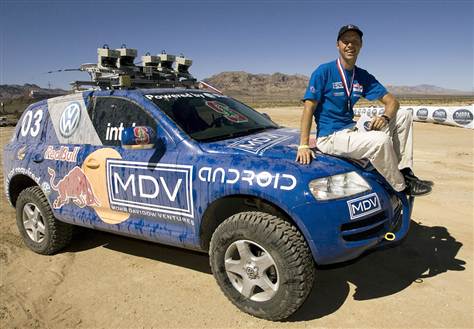Seeing Google cars navigating our streets and highways, with their arrays of spinning sensors and antennas bristling from their roofs gives us the impression that the technology involved is complex and expensive. Until recently, they were, with Wired reporting that early Google cars had multiple $80,000 LIDAR systems, and entrants in DARPA (Defense Advanced Research Projects Agency) challenges often sported over a quarter-million in esoteric devices that could, on occasion, spot the Holy Spirit in the vicinity. (Your editor made that last part up.) Mike Ramsey, writing for the Wall Street Journal suggests those prices may be going down – way down. “A Silicon Valley startup says it has solved several of the issues that might plague the introduction of autonomous vehicles — primarily the cost of the equipment. “Quanergy Systems Inc., of Sunnyvale, Calif., says it will offer a light detection and ranging sensor — or LIDAR — next year that costs only $250 and is the size of …
EAS VIII: Sebastian Thrun Updates Us
Sebastian Thrun is best known for his leadership in the “Google Cars” program, fielding self-driving Priuses in the San Francisco Bay area and having the cars demonstrate a spotless accident record (except for those caused by other drivers running into them.) He shared the current status of that project with attendees at the eighth annual CAFE Foundation Electric Aircraft Symposium in late April. He’s also been responsible for Google Glass, those controversial mega-spectacles that have furnished stand-up comics with new realms of material, although the last laugh may be on scoffers as these ingenious devices point the way toward wearable computers. Thrun’s also created a new type of open university – one that takes advantage of the online experience. “Udacity was born out of a Stanford University experiment in which Sebastian Thrun and Peter Norvig offered their ‘Introduction to Artificial Intelligence’ course online to anyone, for free. Over 160,000 students in more than 190 countries enrolled and not much later, …

